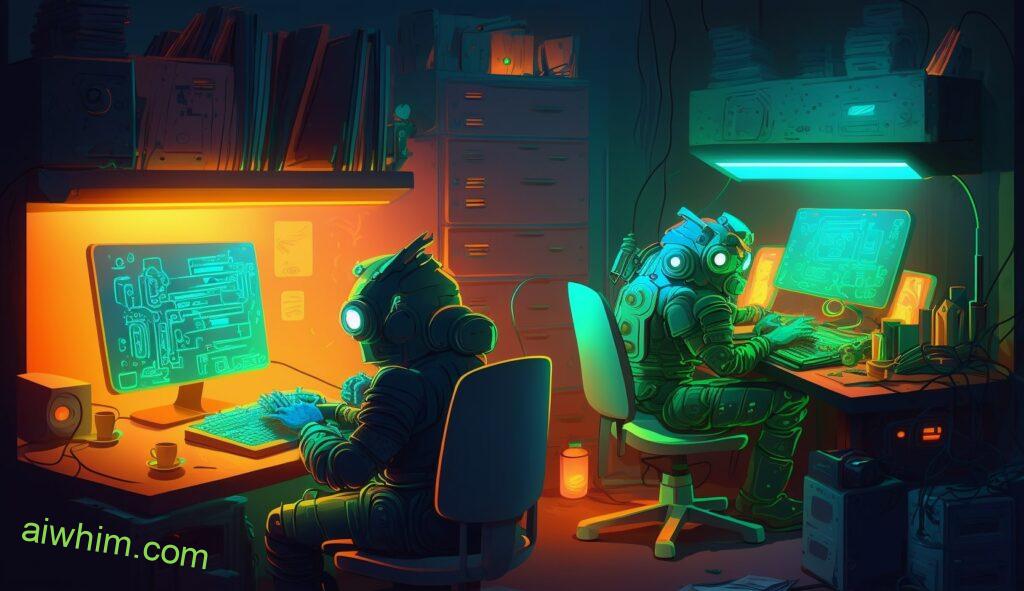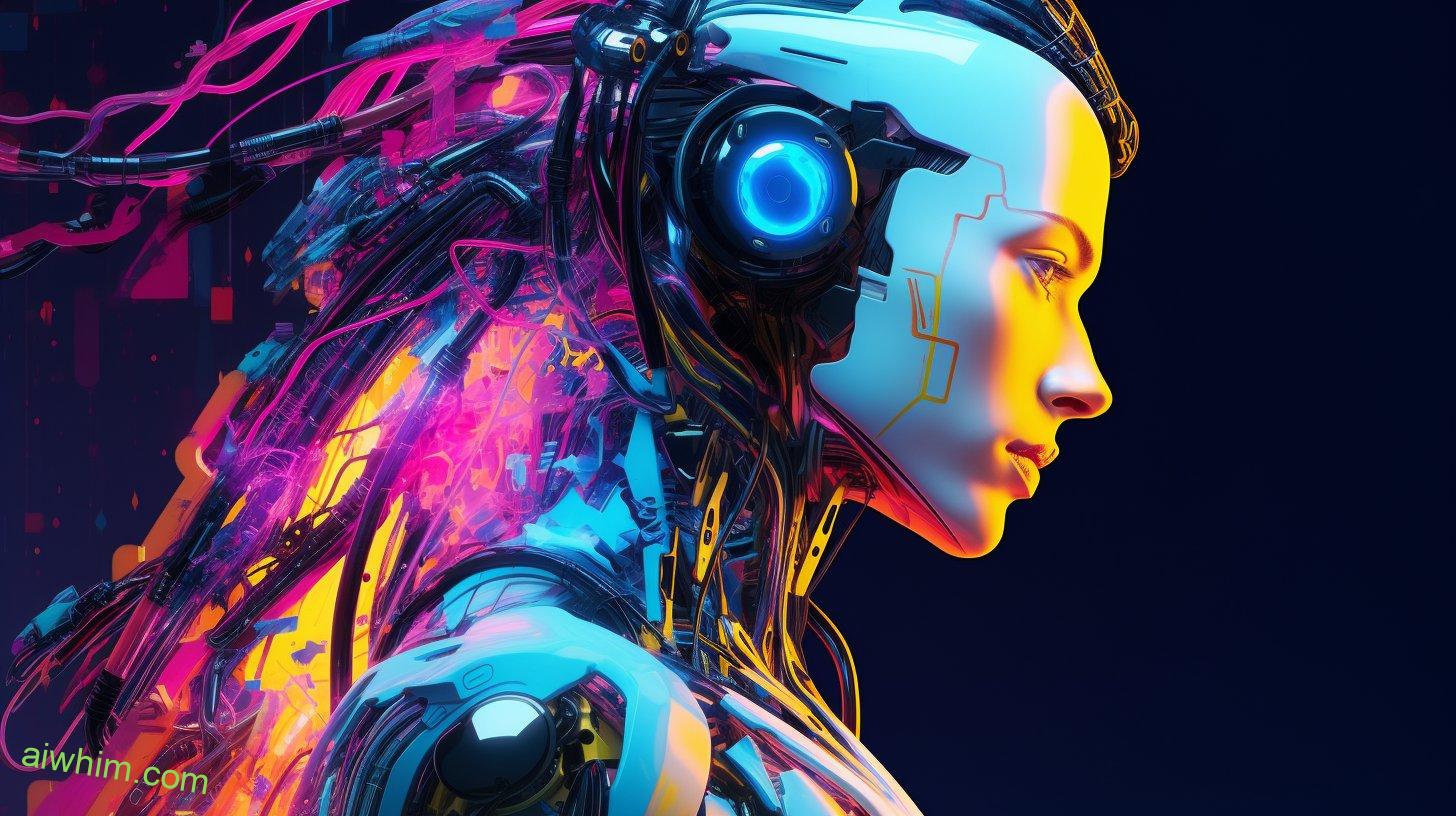Are you a technical support specialist, worried that your job is in danger of being replaced by Chatbots and AI? It’s no secret that automation has become increasingly prevalent across many industries. But how much risk does this new technology pose for tech support workers? In this article, we will explore the realities of chatbot and AI replacement and what steps can be taken to ensure a secure career path.
As the world moves further into an era of digitalization, more jobs are at risk of automation. With advances in artificial intelligence (AI), it’s natural to question whether traditional roles such as technical support specialists could soon be replaced with computers or robots. After all, machines have been taking over manual labor roles since the industrial revolution; why wouldn’t they take over service-based roles too?
The reality is that while automation might not completely replace human workers just yet, there are still some risks associated with job security in tech support positions – especially if employers don’t invest in upskilling their staff. Let’s dive deeper into the topic so you can evaluate whether you need to start preparing yourself for potential changes ahead.
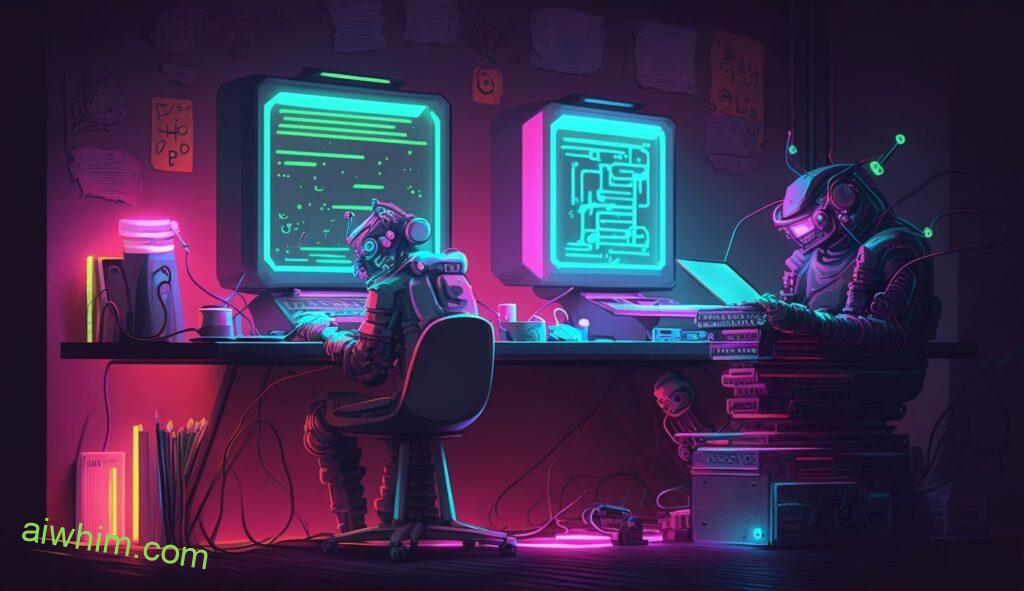
Definition Of Technical Support Specialist
Being a Technical Support Specialist is one of the most sought-after customer service jobs in our digital age. It’s an important role that provides customers with assistance and technical advice on products or services they’re using. A Technical Support Specialist also helps resolve problems related to computer hardware, software, and networks. They provide guidance on how to use systems effectively and answer questions about system features, compatibility issues, setup processes, troubleshooting procedures, etc.
The day-to-day duties of a Technical Support Specialist may include providing phone support for customers having trouble with their product or experience; helping diagnose system errors through test accounts; providing detailed step-by-step instructions on how to fix common errors; writing user manuals; updating knowledge base articles; diagnosing and resolving technical issues over email or chat. Additionally, these professionals often collaborate with other departments such as sales representatives, IT teams and managers when necessary in order to help customers get what they need quickly and efficiently.
A successful Technical Support Specialist needs excellent communication skills as well as good problem solving abilities. Being able to clearly explain complex concepts in plain language is essential in this field. Furthermore, they should have strong interpersonal skills so they can empathize with frustrated users while remaining patient and polite throughout their interactions. With all these qualities combined together it’s no wonder why many businesses prefer hiring experienced Technical Customer Service Specialists instead of outsourcing their customer support operations overseas.
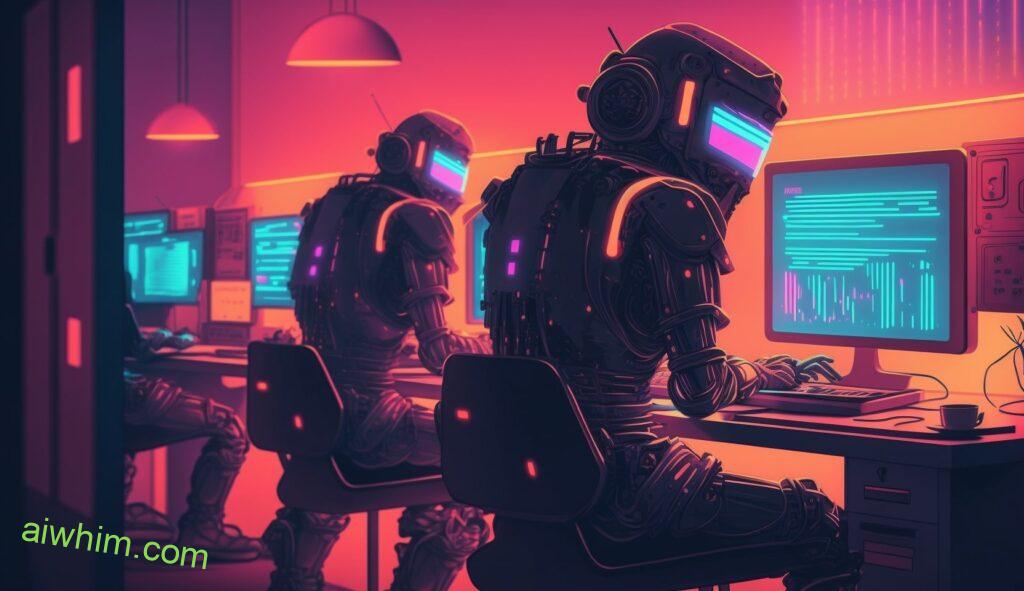
Overview Of Chatbots And AI
Chatbots use artificial intelligence (AI) technology and machine learning algorithms to simulate conversations between human users and machines. This allows them to respond quickly and accurately in ways that would otherwise require human interaction. They can provide helpful information on demand, such as search results or product recommendations, reducing wait times for customers seeking help from a technical support team. However, it’s important to note that this does not necessarily mean they will replace humans completely; rather, they may simply reduce the need for manual input from specialists.
In addition to providing customer service support more efficiently than their human counterparts, chatbot and AI systems can also process huge amounts of data faster than any person ever could. This means they can make decisions based on real-time analysis of large datasets without getting overwhelmed or having to take breaks like a human might after hours of work. As companies begin investing in these powerful tools further down the line, it’s likely that they’ll become even better at performing certain tasks – making them an increasingly attractive option compared to hiring additional staff members.
Whether you’re worried about your current job being taken over by chatbots or considering what new opportunities could arise from working with this exciting technology, one thing is clear: there’s no denying its potential impact on business operations worldwide. It remains to be seen exactly how deeply chatbots and AI will penetrate different industries in the coming years – but whatever happens, one thing is sure: our world won’t remain unchanged for much longer.
Advantages And Disadvantages Of Using Chatbots And AI
Moving on from the overview of chatbots and AI, let’s take a look at the advantages and disadvantages of using these technologies. With their ability to respond quickly and accurately to customer queries, it is no surprise that many businesses are turning to chatbots for their technical support needs. Chatbot advantages include being able to provide 24/7 service, reducing labor costs, eliminating time wasted waiting for answers and increasing customer satisfaction scores. Furthermore, with advances in natural language processing (NLP) technology, more complex tasks can be handled by bots such as helping customers make purchases or booking appointments.
However, there are also some drawbacks associated with relying too heavily on AI-powered solutions. For example, if the data used to train an algorithm is biased or incorrect then this could lead to inaccurate results which may not meet customer expectations. Additionally, while bots can handle mundane tasks efficiently they lack empathy when communicating with customers – something that humans excel at providing. Therefore it is important to ensure that human-AI collaboration exists within any tech support team so that both systems can learn from each other and offer better services overall.
When it comes to job security in relation to chatbots and AI replacing technical support specialists, the answer really depends on how companies decide to use them; whether they choose a fully automated solution or leverage the power of human-AI collaboration will determine whether jobs are created or lost in this sector.

Need For Technical Support Specialists
As technology continues to evolve, so does the need for technical support specialists. The workplace is buzzing with conversations around chatbots and AI potentially replacing customer service roles, leaving many wondering about the job security implications of their current positions. Here are 4 reasons why there’s still a need for technical support professionals:
- Personal Interactions – Chat bots and AI can only do so much when it comes to providing detailed explanations or troubleshooting more complex issues that require an in-depth understanding of the product/service being supported. Human interactions remain paramount in delivering quality customer service experience.
- Empathy – Technical support specialists have a unique ability to empathize with customers, often helping them find solutions beyond just resolving their immediate issue at hand but sometimes even offering advice on how they can improve their user experience going forward.
- Problem Solving Skills – Troubleshooting requires attentiveness and problem solving skills which robots may not be able to provide as effectively as humans. It takes keen observation and analysis from human eyes and brains to identify patterns or underlying causes of problems quickly, something automated systems cannot yet replace completely yet.
- Adaptability – With new technologies coming out every day, tech support teams must constantly stay up-to-date with all changes that come along with these updates, requiring both training and adaptation from employees who are already familiar with existing products/services. This constant evolution in the landscape keeps things interesting for those employed in this field while ensuring customers get the best possible service available today!
In summary then, having skilled technical personnel has become increasingly important over time due to its importance in delivering excellent customer service experiences without compromising on accuracy or efficiency of resolution times — something robots simply cannot match right now!
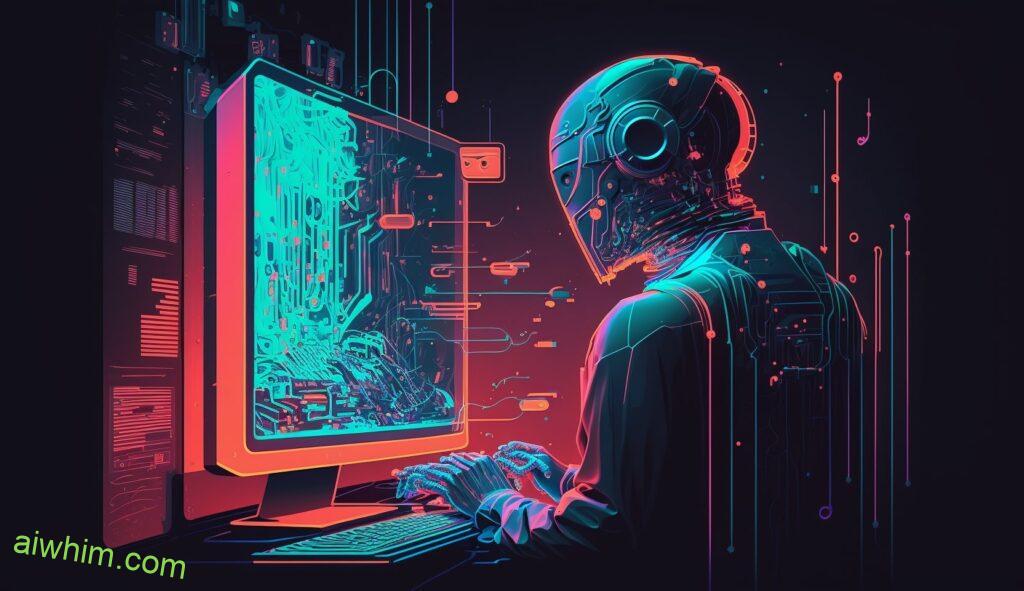
Impact Of Technology On Technical Support Specialist Roles
In the current age of technology, the role of technical support specialists has been profoundly impacted by automation. There is a growing trend in customer service departments to implement automated systems and chatbots as an alternative to human-based solutions. This shift towards AI has raised concerns about job security for tech support specialists, who may be rendered obsolete due to their roles being replaced by machines.
At first glance, it appears that there is immense risk for technical support specialists; however, this could not be further from the truth. Automation does not replace humans completely but rather assists them in performing better with increased efficiency and accuracy. By leveraging both human and machine capabilities, companies can enhance customer service quality while mitigating costs associated with traditional manual labor. As such, the future of technical support services lies in successful collaboration between humans and AI – something which cannot be achieved without experienced professionals at the helm.
Rather than replacing technical support specialists altogether, advances in automation have helped redefine their responsibilities within customer service departments. Through integrating cutting-edge technologies into existing processes, tech experts are now able to focus on providing higher value tasks such as problem diagnosis or data analysis instead of mundane administrative ones like order entry or ticket escalation. In other words, automating certain aspects of customer service allows technicians to use their expertise more effectively while still delivering excellent results quickly and accurately.
This new landscape presents incredible opportunities for those working in tech support roles to expand their skillset and become even more valuable assets to their employers. With proper training and guidance on how to make best use of automation tools, coupled with greater autonomy over decision making processess, tech specialist can remain competitive no matter what changes the industry brings forth.
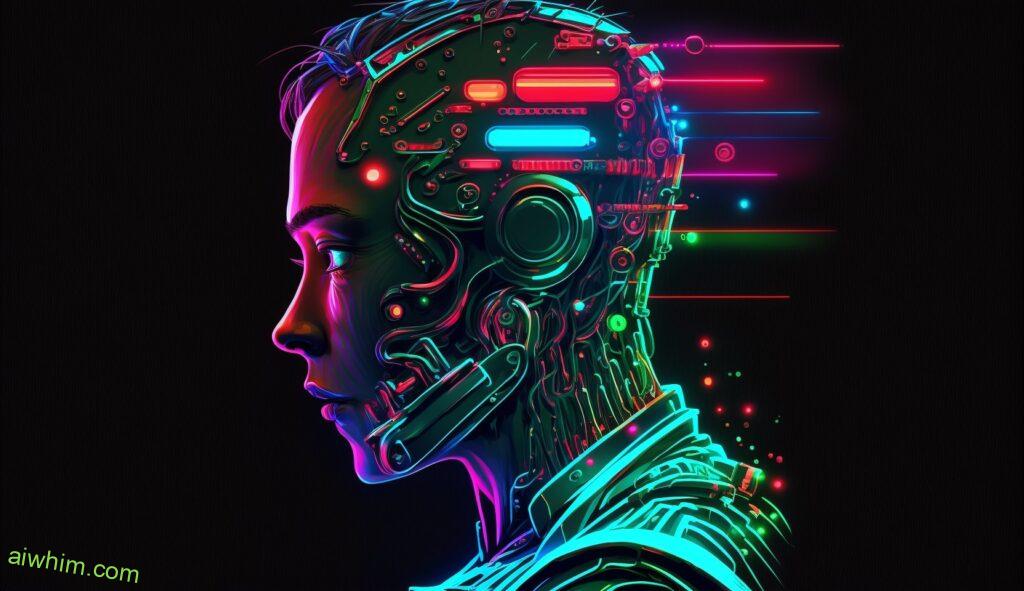
Potential Effects On Quality Of Support Service
The prospect of technology replacing technical support specialists is a daunting one. Imagine the customer experience without a human face; replaced instead with robotic responses and automated processes. Though cost-effective, there’s no doubt that this could have an adverse effect on quality assurance and customer satisfaction.
Chatbots are designed to respond quickly to inquiries, but they lack the knowledge or ability to really understand why customers are calling in the first place. Without understanding their needs, it can be difficult for chatbot programs to provide satisfactory solutions. Moreover, these answers tend to be scripted which leads to a feeling of detachment from the company – something that could drastically impact customer experiences and relationships.
On the other hand, AI has shown promise when it comes to improving customer service by providing more accurate resolutions faster than humans ever could. By leveraging machine learning algorithms, AI systems can analyze data quicker than any person possibly could. However, if not implemented correctly AI can create further confusion as well as produce inaccurate results leading to decreased customer satisfaction levels.
Clearly, while technology may offer some advantages in terms of cost savings and efficiency gains, its use should always be balanced against its potential effects on quality of customer service and overall user experience. Companies must carefully weigh these considerations before making any decisions about how much automation should be used in their operations.

Automation Challenges For Technical Support Specialists
As technology advances, automation challenges for technical support specialists are becoming more prevalent. Automation can increase efficiency and accuracy in many areas of the job, but it also poses a risk to those working in this field. AI and chatbots have been developed to automate certain tasks that were previously done by humans, such as customer service inquiries. This has resulted in fewer jobs for traditional tech support staff members who may be replaced by these new technologies.
The challenge for technicians is being able to adapt quickly enough to stay relevant amidst increasing automation. Technicians must learn how to use automated tools effectively while still providing high-quality customer service and troubleshooting assistance. They should focus on developing their skills in areas like coding, data analysis, problem solving, and communication which are all essential aspects of modern technical support roles. In addition, they need to understand how the latest technologies work so they can apply them appropriately when needed.
Technical support specialists must remain proactive about staying up-to-date with industry trends and advancements if they hope to sustain their positions within the competitive landscape. With continued education and training, technicians can ensure that their skillsets remain valuable even as more tasks become automated over time. Keeping a positive attitude towards learning new techniques will go a long way towards helping them succeed despite the ever-evolving technological landscape.
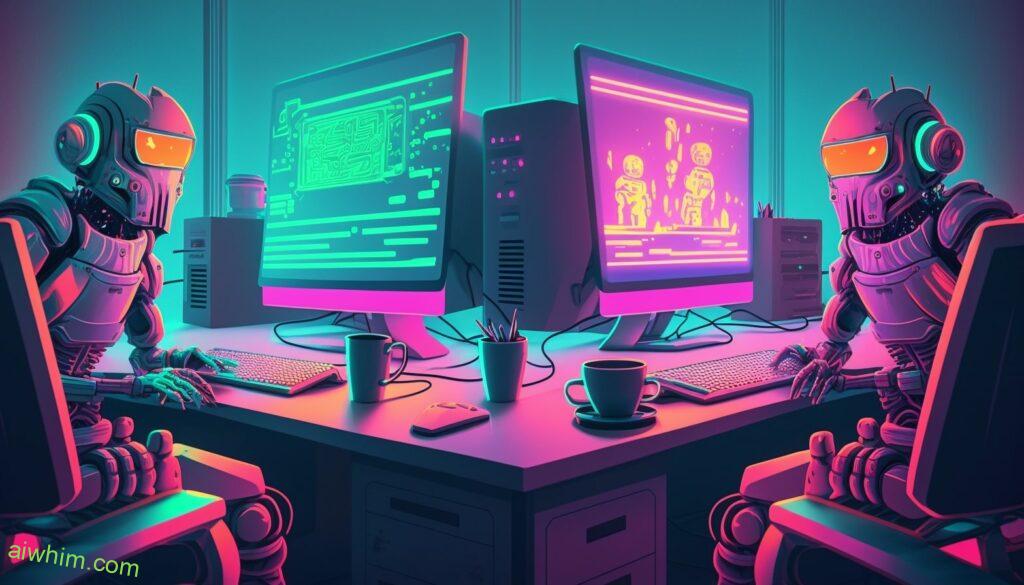
Benefits For Companies In Using Chatbots And AI
Companies are quickly realizing the tremendous benefits of using chatbots and AI in customer service automation. The advantages to implementing such an automated system are virtually limitless! Companies can now provide faster, more efficient services without sacrificing quality or accuracy. Customers can expect 24/7 availability for their inquiries, as well as immediate responses from the chatbot or AI-assisted support staff. In addition, companies no longer need to hire additional personnel to manage customer service operations; instead, they can rely on this revolutionary technology to do the work for them.
The most significant advantage of utilizing chatbots and AI is its cost savings potential. Instead of paying human labor costs associated with providing a high level of customer service, businesses can outsource these tasks to automated systems that require minimal input and training. This means that companies save money while still delivering excellent results – all thanks to the power of artificial intelligence. Furthermore, customers appreciate the convenience of having a virtual assistant available at any time they have questions or concerns about products or services offered by a company.
Chatbots and AI also offer certain security features that cannot be found with traditional customer service methods. For instance, because automated programs run independently from humans, there is less risk of data being hacked or accessed illegally by unauthorized individuals. As such, companies have peace of mind knowing their sensitive information remains safe and secure when using these innovative technologies for customer service automation. Additionally, chatbots and AI make it easier for organizations to track transactions and monitor user activity within their platforms – allowing them to better identify potential frauds before any damage occurs.
Businesses everywhere are recognizing the undeniable value brought by chatbot benefits and ai advantages in terms of speed, efficiency, cost savings and overall improved customer experience – making automation essential part of today’s digital world.
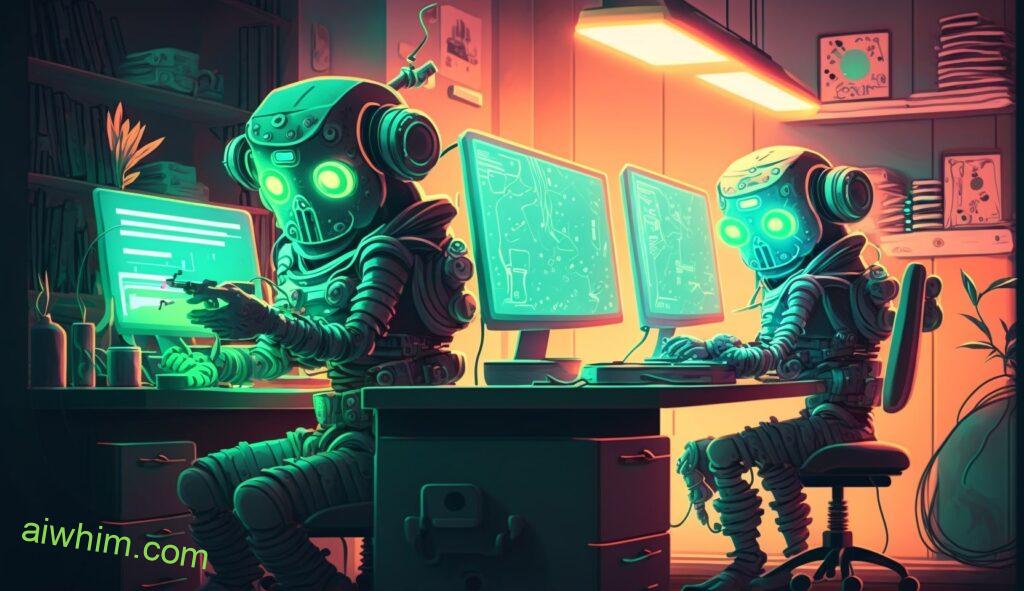
Increased Efficiency In Support Specialist Customer Service
It’s no secret that customer service automation is becoming increasingly popular. Automation can provide customers with faster and more accurate responses, leading to increased efficiency in customer service. As a technical support specialist, there may be some risk of being replaced by automation.
The use of chatbots and artificial intelligence (AI) has become almost ubiquitous in customer service initiatives. With AI, companies can create bots that respond quickly to inquiries and help direct customers through their desired process without the need for human assistance. This allows businesses to handle more requests from customers at once while also providing improved accuracy compared to manual processes. In addition, automation cuts down on costs associated with training new staff members or hiring additional personnel – making it an attractive option for many organizations.
With all this said, not everything about automation should be viewed negatively. It offers potential benefits such as:
- Quicker response times
- More accurate answers
- Reduced overhead costs
- Increased productivity
Ultimately, automated systems offer organizations a way to streamline operations and improve overall customer experience in ways that could never have been achieved manually before. Therefore, tech professionals shouldn’t worry too much about job displacement due to automation; instead they should focus on how they can leverage its capabilities in order to maximize their own skillset and stay ahead of the competition!
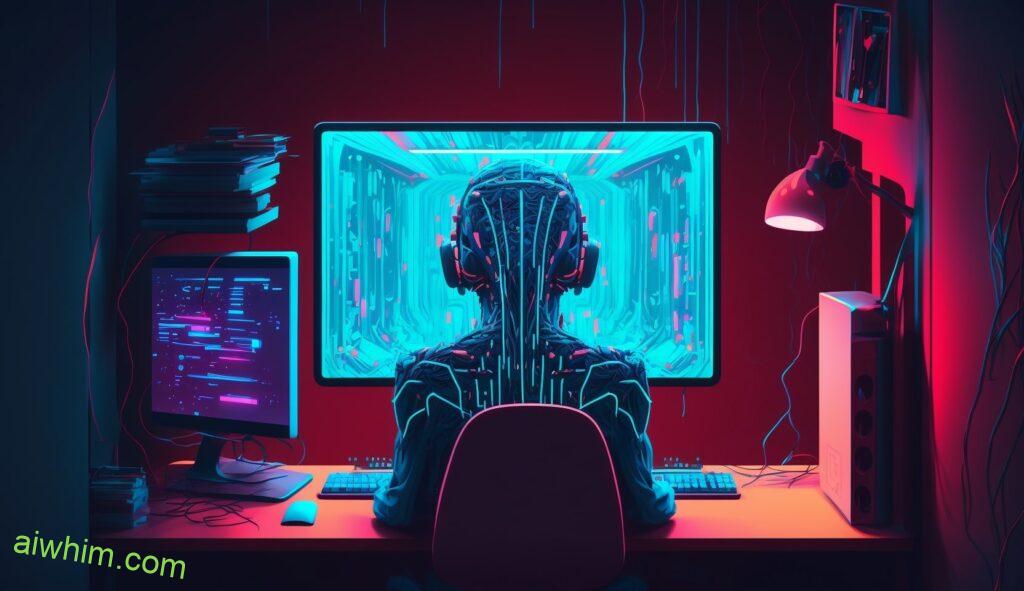
Impact On Job Security For Technical Support Specialists
The introduction of artificial intelligence and chatbots into technical support has many people worried about job security. While there is no denying the efficiency that AI automation can bring to any industry, it’s important to remember that technical support specialists still have an essential role to play in customer service.
As a technical support specialist, you will be able to offer something more than just automated responses. You’ll have the ability to think outside the box when dealing with complex problems, providing solutions tailored specifically for each client. This level of expertise cannot be replaced by AI automation alone. Having said this, it is worth noting that technology continues to improve at a rapid rate and so organizations may look towards greater use of AI-driven solutions over time.
It is therefore essential that technical support specialists continually develop their skillset in order to stay competitive in the marketplace. Keeping up with emerging trends and understanding how to integrate new technologies into existing systems are key elements for staying ahead of potential replacements from computer bots or other automated solutions. Being able to demonstrate your value as a knowledgeable professional who understands both human customer needs and digital innovations should ensure job security for years to come.
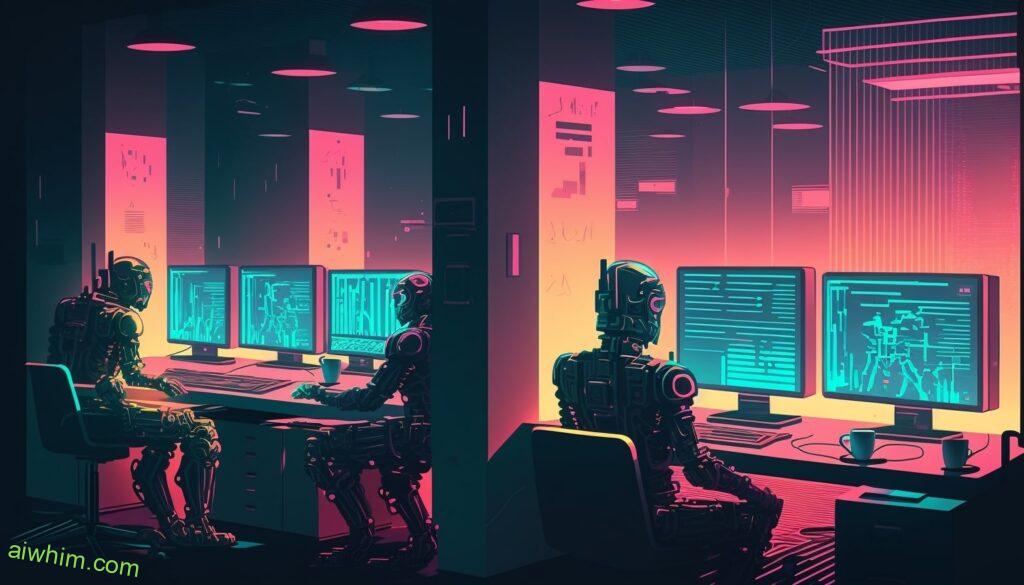
Necessary Skills To Stay Relevant In The Workplace
As technology continues to evolve, it is important for technical support specialists to sharpen their skills in order to stay relevant and competitive. The risk of being replaced by chatbots or AI may be present, but with the right set of skills, tech support professionals can remain marketable.
Symbolism paints a vivid picture that evokes emotion from readers; similarly, having specialized knowledge in customer service trends is an essential skill for staying ahead of automation tools. Technical support experts must continuously strive to increase their understanding of how new technologies impact customer needs and expectations. This includes keeping up-to-date on industry developments as well as sharpening one’s own technical support knowledge.
Customer service is much more than just troubleshooting computer issues; it also requires soft skills such as problem solving and communication abilities. As businesses become increasingly globalized, there is demand for professionals who have both language fluency and cultural sensitivity – qualities which are often difficult for machines to replicate. By honing these humanistic traits along with remaining technically adept, technical support specialists will be able to confidently tackle any job related challenge:
• Develop your network: Reach out to peers within the same field and join professional associations or clubs where you can discuss latest trends in technology and customer service
• Expand your repertoire: Take online courses or attend seminars related to current topics such as data analytics or cloud computing
• Learn a new language: Being bilingual gives you access to different markets around the world while providing customers with better experiences when they need help
• Showcase your talents: Create portfolios demonstrating your expertise (e.g., blog posts) so potential employers know what sets you apart from other candidates
• Embrace failure: Make mistakes part of your learning process by reflecting on them and applying those lessons moving forward
Technical support specialists should never stop striving towards self-improvement if they want to remain competitive in today’s ever changing landscape. Keeping abreast of innovation while developing interpersonal skills provides a strong foundation for success – no matter how advanced artificial intelligence becomes.

Developments In Artificial Intelligence
The rise of artificial intelligence (AI) has impacted many industries, and the job market is no exception. AI technologies are transforming how businesses operate and what roles employees have. In particular, technical support specialists may be at risk of being replaced by machines powered by machine learning algorithms.
Deep learning techniques can process large amounts of data to automate certain tasks that don’t require human judgment or creativity. This means that certain processes handled by technical support specialists could soon be taken over by automated chatbots. For example, a customer service representative might ask a series of questions to diagnose an issue with a product before providing assistance; this same task could be completed more quickly and accurately using AI-driven chatbot technology.
Though some jobs related to technical support may become obsolete due to advances in AI, it’s also important to consider the opportunities created for skilled professionals as well. With increased automation comes new opportunities to create innovative solutions that weren’t possible before. Professionals who possess advanced skills in engineering, programming, and other areas will likely find ample openings in fields where businesses need help developing these powerful tools. Overall, while there is certainly risk associated with advancements in AI technology within the job market, there are also exciting prospects available for those looking to stay ahead of the curve.
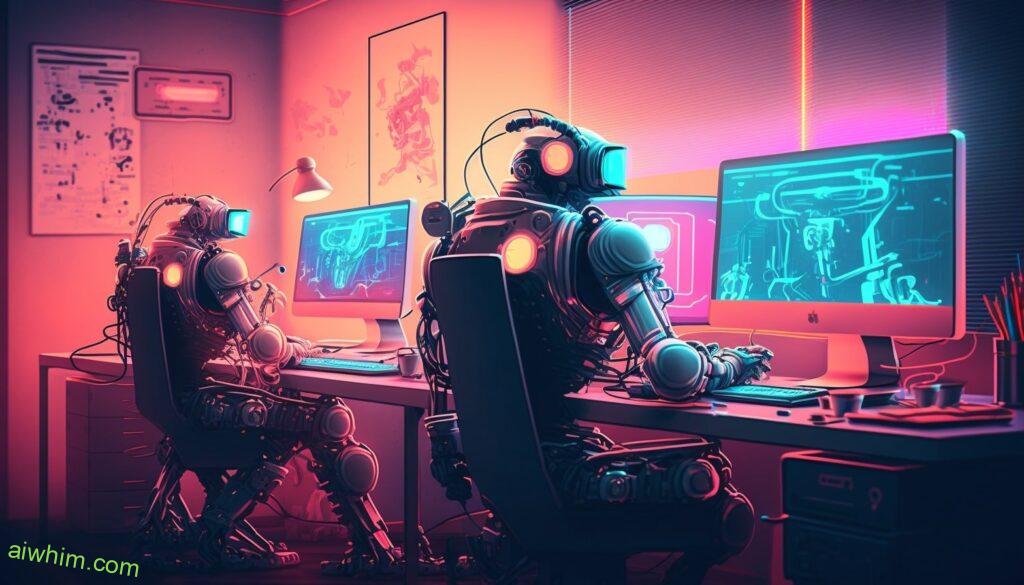
Possibilities For Improvement With Human-AI Collaboration
Having explored the developments of artificial intelligence, we now turn our attention to its potential for improvement when collaborators are both human and AI. It is true that many customer service-related jobs could be replaced by AI agents in the future; however, there may also be great opportunities for better customer experience through a combined effort of humans and machines.
Let us take a look at what possibilities exist:
- Human-AI collaboration can improve accuracy in customer service tasks.
- By utilizing automated systems such as chatbots, customer service agents have more time to focus on complex queries which require higher levels of expertise or empathy.
- Automation will help streamline mundane processes while freeing up employees’ bandwidth to handle more challenging cases.
- AI can provide real-time insights into customers’ needs, allowing businesses to tailor their services accordingly.
The benefits of leveraging both human and machine capabilities cannot be overstated – but it requires an understanding of how they can work together best if it’s going to result in improved outcomes for customers. For example, one strategy might involve incentivizing customers to use automated solutions like chatbots when possible, while still providing direct access to human assistance when needed – this would ensure that everyone gets their questions answered quickly without overwhelming staff with too much manual labor. The key then lies in finding the optimal balance between automation and human support in order to maximize customer satisfaction and loyalty.
Overall, with careful consideration given towards optimizing customer experience through a combination of human-ai collaboration and intelligent automation techniques, companies can create positive experiences that drive long term value from their customers.

Implications For Businesses & Consumers
The implications of chatbots and AI on technical support specialists are far-reaching for both businesses and consumers. Businesses may benefit from the cost savings associated with replacing human employees with automated technology, but they risk losing out on the customer service that comes from having a human touch. Consumers could find themselves relying more heavily on AI to solve routine tech issues, though quality assurance becomes an issue when dealing with machines. Job security is arguably one of the most pressing concerns in this situation; while it’s possible that some jobs will be replaced by automation, it’s likely that many new positions related to AI and machine learning will also become available.
From a business perspective, investing in cutting-edge technologies like AI has the potential to streamline operations and create efficiencies within organizations. Automation can remove mundane tasks from the job duties of existing staff members, allowing them to focus their energy elsewhere. Additionally, businesses stand to gain access to large amounts of data collected through automated processes which can help inform future decisions. However, there is still room for error as well as difficulty interpreting complex user interactions—something only humans are capable of doing optimally at this time.
For consumers, chatbots and other forms of artificial intelligence have made accessing technical assistance easier than ever before. Obtaining advice or troubleshooting solutions no longer requires waiting on hold for extended periods or speaking directly with someone over the phone; instead users can get answers quickly via text message or voice command apps. While convenience is certainly an advantage here, there is also cause for concern regarding privacy breaches or inaccurate responses resulting from improper programming or misinterpreted questions/answers.
Overall, companies must weigh these factors carefully when considering implementing autonomous systems into their workflow—both positive and negative considerations should be taken into account before deciding how best to proceed. From a consumer standpoint, caution should be exercised when using any form of AI-based assistant due diligence being done beforehand so as not to fall victim to any unwanted security risks
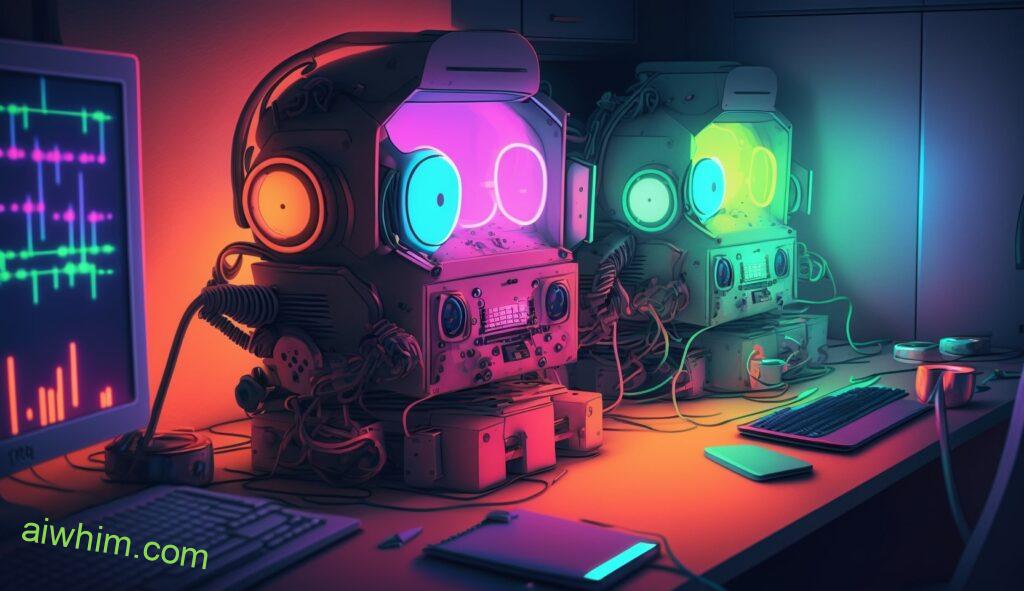
Future Outlook
The future of technical support specialists is uncertain, with the rise of AI automation and chatbots. It’s almost as if a storm cloud looms overhead, waiting to unleash its fury. However, there are still some rays of hope that can offer job security within this field.
- Job security may be achieved through specialisation: focusing on niche areas such as software programming or hardware repair.
- Technical support professionals who have strong customer service skills will likely remain in demand due to the human element involved in problem solving and troubleshooting.
- Adapting quickly to changes in technology trends and developing new skillsets could also create opportunities for those seeking long term stability in this profession.
Ultimately, it is clear that AI automation and chatbots cannot completely replace technical support specialists; even though they might make certain aspects of their jobs easier or faster to complete. Although companies may opt for more automated solutions when it comes to technical support customer service, humans will always be needed when dealing with complex issues which require empathy and creativity – two qualities which machines lack at present. Therefore, those willing to adapt accordingly can ensure continued employment while continuing to add value to the industry.
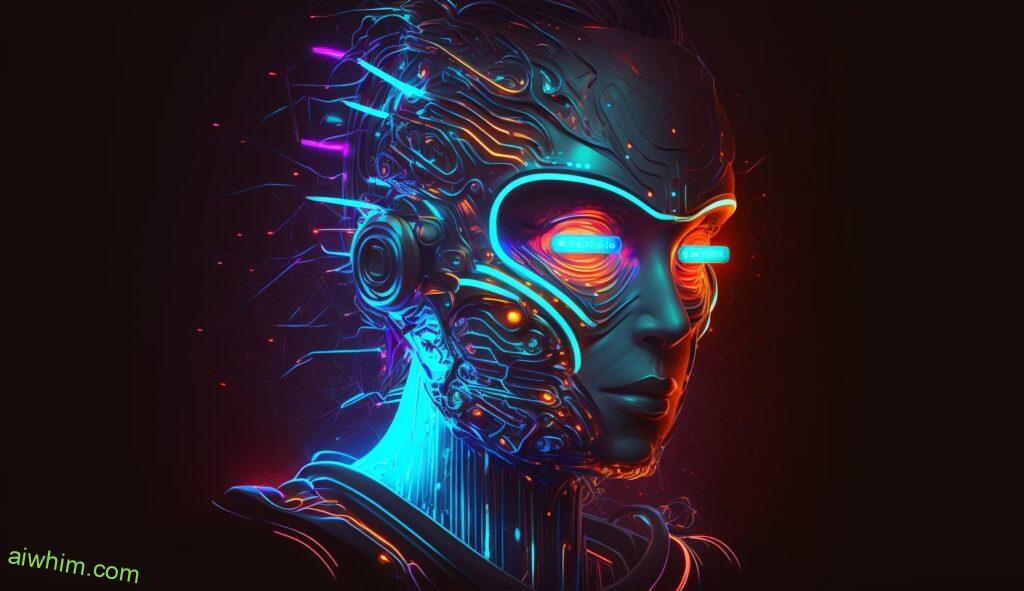
In Summary: Will Technical Support Specialist Be Replaced?
The use of chatbots and AI in technical support customer service is becoming increasingly popular as more companies look for ways to save money. As a technical support specialist, it is important to understand the potential risks associated with this technology. While there are many benefits, such as cost savings and improved customer experience, these tools also have the potential to replace human workers if used improperly.
Ultimately, while robots may be able to take over some aspects of technical support customer service tasks, they cannot provide the same level of personalized attention as a skilled human worker can. Therefore, rather than worrying about being replaced by bots and AI, those interested in working as a technical support specialist should focus on honing their skills so that they remain valuable even as technology advances – for after all, no matter what changes occur in this industry, people will (hopefully) always come first!
Author: Ole Paulson
Author Bio: I’m Ole and on this website, I share everything there is to know about Artificial Intelligence, and useful tips for using AI to our advantage. I have a background in data science and research and have been following the AI-space for years. You can read more about me in the “About” page.

